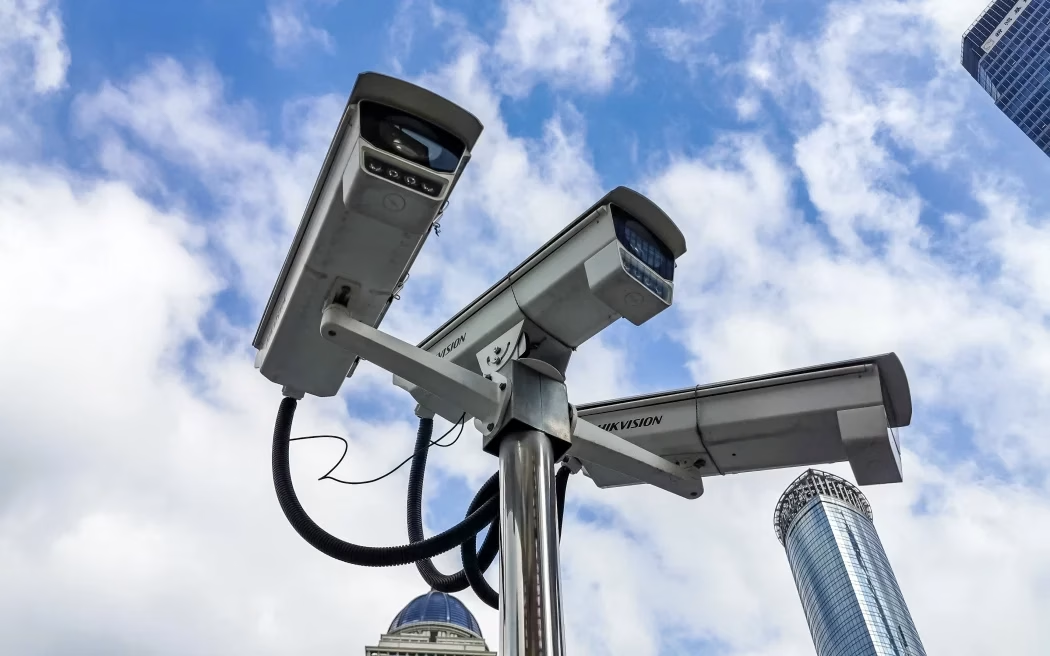Canada Orders Hikvision to Cease Operations: A Deep Dive into National Security and Geopolitics
Well, here we are again, talking about national security and the ever-tightening grip on foreign tech. Just yesterday, Canadian Industry Minister Melanie Joly made a pretty significant announcement on X, stating that the government has ordered Hikvision Canada to cease all operations and close its business in the country. This isn't just a minor blip on the radar; it's a decisive move that speaks volumes about Canada's evolving stance on cybersecurity and its relationship with global tech giants, especially those with ties to certain state actors.
The Hammer Drops: What This Order Means
The announcement itself was quite direct, delivered via a social media post, which, let's be honest, is becoming the new normal for breaking news from government officials. It underscores the urgency and the definitive nature of the decision. For Hikvision, a global leader in video surveillance equipment, this is a major blow to their North American presence. They've been a dominant player, their cameras and systems are everywhere, from public transit to private enterprises.
Why Now? The National Security Imperative
The core reason cited for this drastic measure is, unsurprisingly, national security. This isn't a new concern; it's been simmering for years. Western governments have been increasingly wary of Chinese-made technology, particularly in sensitive areas like surveillance and telecommunications infrastructure. The fear, of course, is that these devices could be used for espionage, data exfiltration, or even sabotage by foreign governments.
Think about it: surveillance cameras capture an incredible amount of data. Who's coming and going, what they're doing, even facial recognition data. If that data, or access to the systems themselves, could potentially be compromised or exploited by a foreign power, well, that's a pretty big deal, isn't it? It's a risk many countries are no longer willing to take. We've seen similar actions from our allies. The United States, for instance, has blacklisted Hikvision, and the UK has banned their products from sensitive government sites. Canada's move, however, goes a step further by ordering a complete cessation of operations. It's a clear signal that Ottawa isn't just restricting; it's expelling.
Ripple Effects: What's Next for Canadian Businesses?
This decision will undoubtedly create a significant ripple effect across the Canadian market. Any organization currently relying on Hikvision products will now need to scramble for alternatives. This isn't just about buying new cameras; it's about potentially overhauling entire security infrastructures. That's a costly and time-consuming endeavor.
- Market Shift: We'll likely see a surge in demand for non-Chinese surveillance solutions. This could be a boon for companies from other allied nations, or even domestic Canadian tech firms, if they can scale up.
- Supply Chain Considerations: It also highlights the vulnerabilities in relying heavily on single-source or geopolitically sensitive suppliers. Businesses might start diversifying their tech procurement strategies more aggressively.
- Economic Impact: While the direct economic impact on Canada from Hikvision's departure might be minimal in the grand scheme, it sends a strong message to other foreign tech companies operating here. It says, "National security comes first, always."
And what about Canada's relationship with China? This move, while framed purely as a national security issue, will inevitably be viewed through a geopolitical lens. It's another point of friction in an already complex relationship.
A Precedent Setting Move?
Is this a one-off, or are we witnessing the beginning of a broader trend in Canadian policy? My gut tells me it's the latter. The government's decision to order a complete shutdown, rather than just a ban on new sales or use in critical infrastructure, suggests a hardening stance. It sets a powerful precedent for how Canada might deal with other foreign tech firms perceived to pose similar risks.
It makes you wonder, doesn't it? What other technologies, what other companies, might be under the microscope? This isn't just about cameras; it's about network equipment, software, and any technology that could potentially create a backdoor into our systems or compromise our data. The digital battlefield is real, and governments are increasingly treating it with the seriousness it deserves.
Ultimately, Canada's order for Hikvision to cease operations is a clear, unequivocal statement. It prioritizes national security and aligns Canada more closely with its Western allies in pushing back against perceived threats from state-linked technology. For businesses and consumers alike, it's a stark reminder that in the interconnected world, the origins of our technology matter more than ever. It's a complex situation, for sure, and one that will continue to unfold with significant implications for Canada's tech landscape and international relations.
